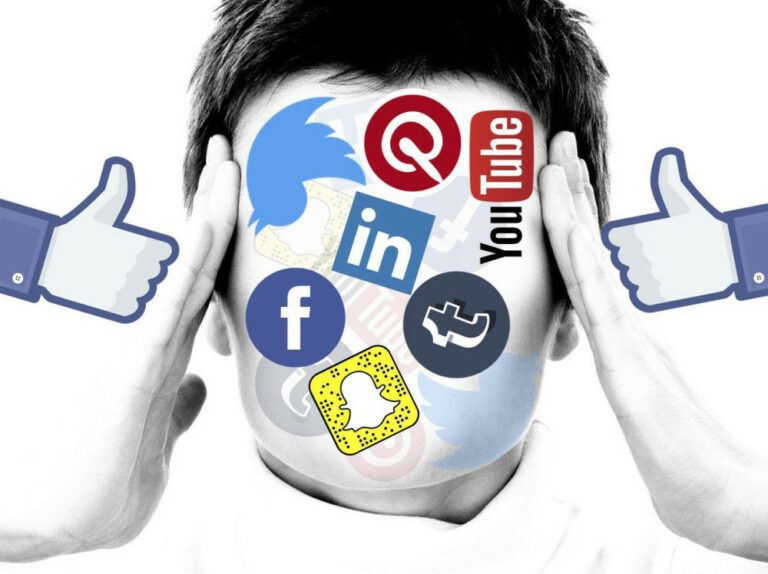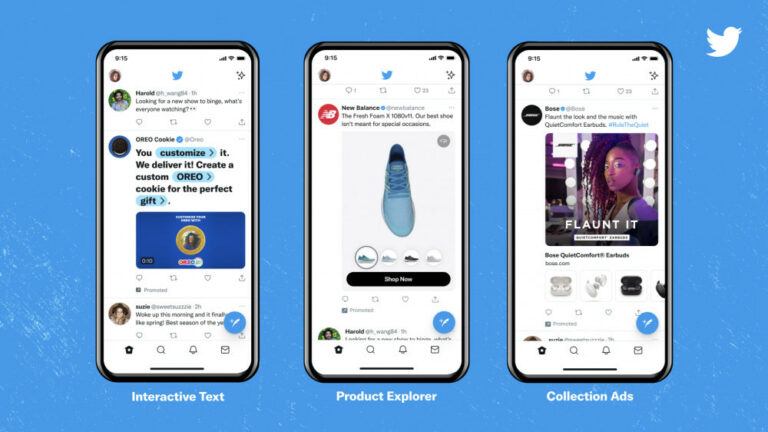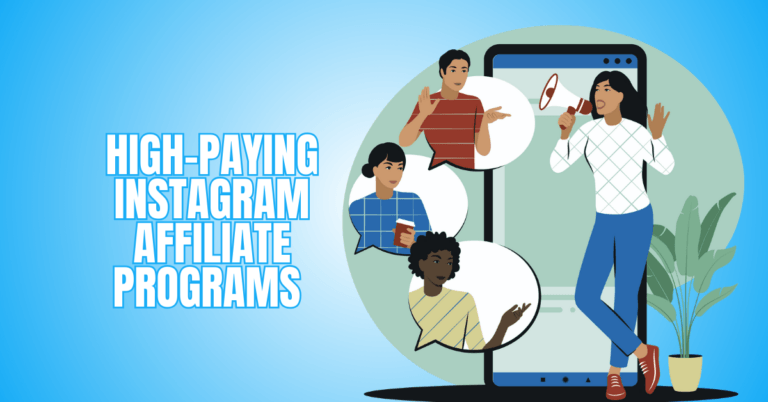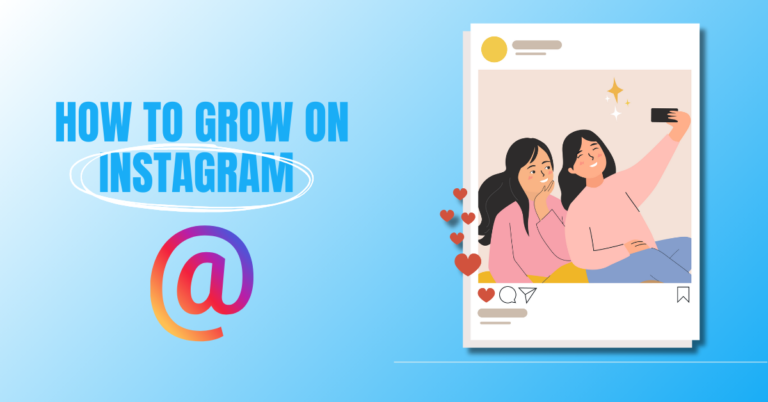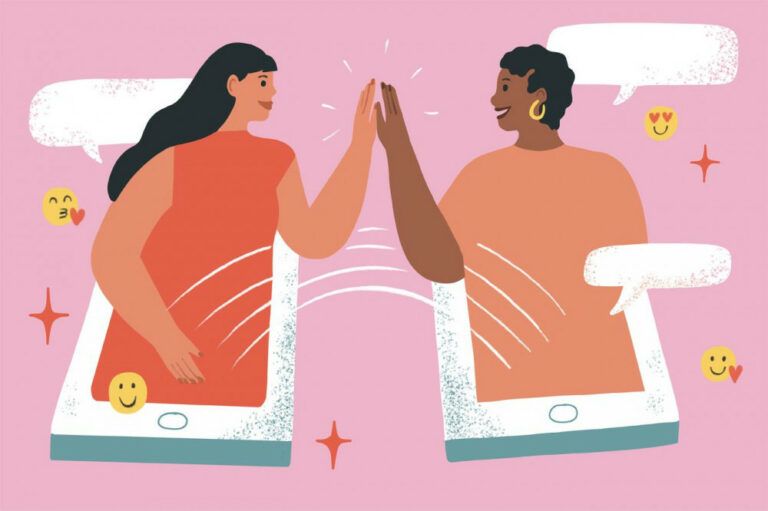Psychology For Marketers
Psychology For Marketers: 15 Persuasion Secrets For Social Media
Your best friend for digital marketing will be data, and psychology for marketers will analyze the data and will set this to their needs.
Marketers who can identify and capitalize on the psychological triggers that result in purchasing decisions can create campaigns that resonate deeply, resulting in targeted, more impactful marketing efforts.
This blog will explore how principles like social proof, scarcity, and reciprocity can be implemented in digital marketing to drive conversions, build engagement, and foster long-lasting customer loyalty.
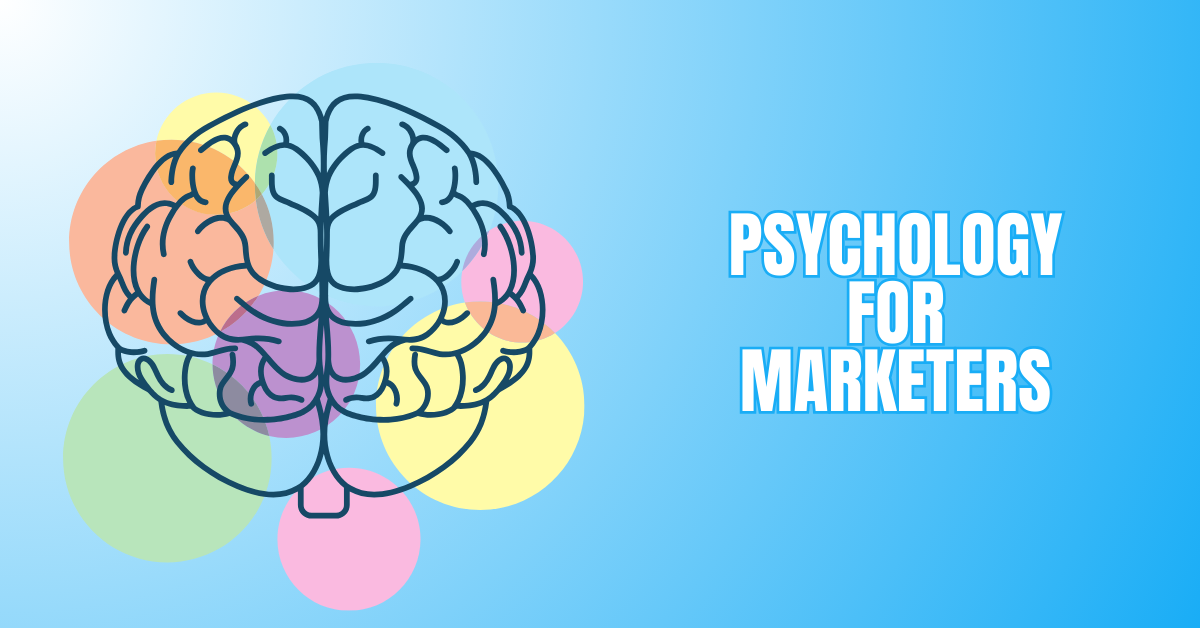
Understanding Consumer Behaviour
1. Motivation
Psychology for marketers starts with knowing why consumers do what they do. Consumers are motivated by emotional, psychological, and functional needs—convenience, status, self-actualization, and entertainment. This knowledge allows marketers to build better messages and offers and help customers choose.
Digital marketers can build customized experiences that connect with consumers by appealing to what motivates their behaviour, therefore improving engagement and conversions. Dealing with fundamental marketing reasons helps establish closer relationships with possible clients.
2. Perception
Perception in digital marketing refers to how consumers interpret a brand or product through online interactions. This perception is shaped by design, usability, content quality, and visuals, among other factors.
Psychology for marketing teaches that consistency is key to a positive image, and the same principle applies to all digital touchpoints.
Building trust and enhancing consumer views using the aesthetically beautiful, simple-to-use, and consistent values of the online presence of a business will assist marketers in strengthening brand loyalty. Maintaining relationships depends critically on a powerful first impression.
3. Emotional Triggers
Emotions largely influence online customer behaviour. Purchasing decisions reflect positive emotions, including trust, excitement, and enjoyment.
Digital marketers can employ emotional triggers in their advertisements by including relevant stories, positive images, and humor.
Want to Start Making Money Online?
Try My #1 Recommendation Program!
Stronger relationships created by matching their material to consumers' emotional requirements will increase engagement and conversions.
Emotional marketing motivates people to behave and create lifelong brand relationships. This emotional bond motivates
4. Decision-Making Process
Customers' decision-making processes combine emotional effects with logical thought. Knowing this mix helps companies in digital marketing improve their plans.
Clear, thorough product information, customer reviews, and comparisons will help the logical side of decision-making.
However, the emotional aspect also matters since resolving problems and providing answers might make buying more instant.
Marketers must compromise between both to maximize conversion rates. Guiding decisions depend on providing incentives or answers to overcome uncertainties.
5. Social And Cultural Influences
Social and cultural aspects strongly influence online customer behaviour. When deciding what to buy, people often consult others for direction.
Psychology advises marketers that social evidence, including user-generated content, influencer endorsements, and customer reviews, can raise consumer confidence and trust.
These factors can help marketers show how relevant and popular a product is, thus increasing its appeal to potential consumers.
Matching marketing plans with cultural trends improves brand relatability and strengthens ties with target markets, generating more accurate, more powerful brand loyalty.
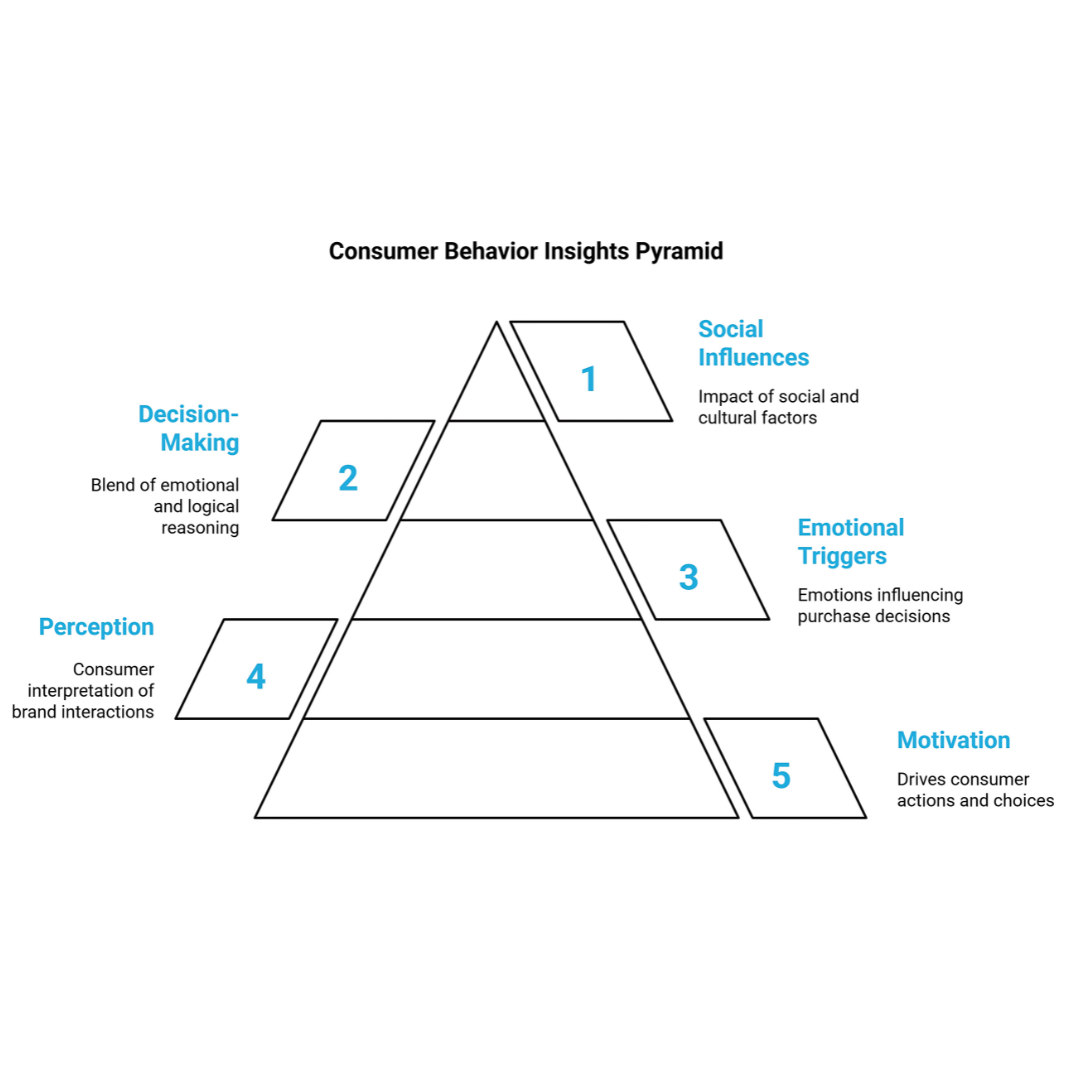
Psychological Principles Used In Marketing
1. Social Proof
Social proof is the inclination people have to base decisions on the behaviour of others. This idea is essential in digital marketing since buyers seek peer evaluations, ratings, and testimonials before purchasing.
Psychology for marketers stresses the need for social proof to affect consumer behaviour since it creates credibility and confidence.
Want to Find Out How To Start Your Home-Based Business?
Try My #1 Recommendation Platform!
Companies should highlight user comments, real-time purchase alerts, and influencer endorsements to leverage them appropriately.
Presenting user-generated content or case studies also fosters confidence and motivates action since consumers are more likely to buy when they see others' successful experiences.
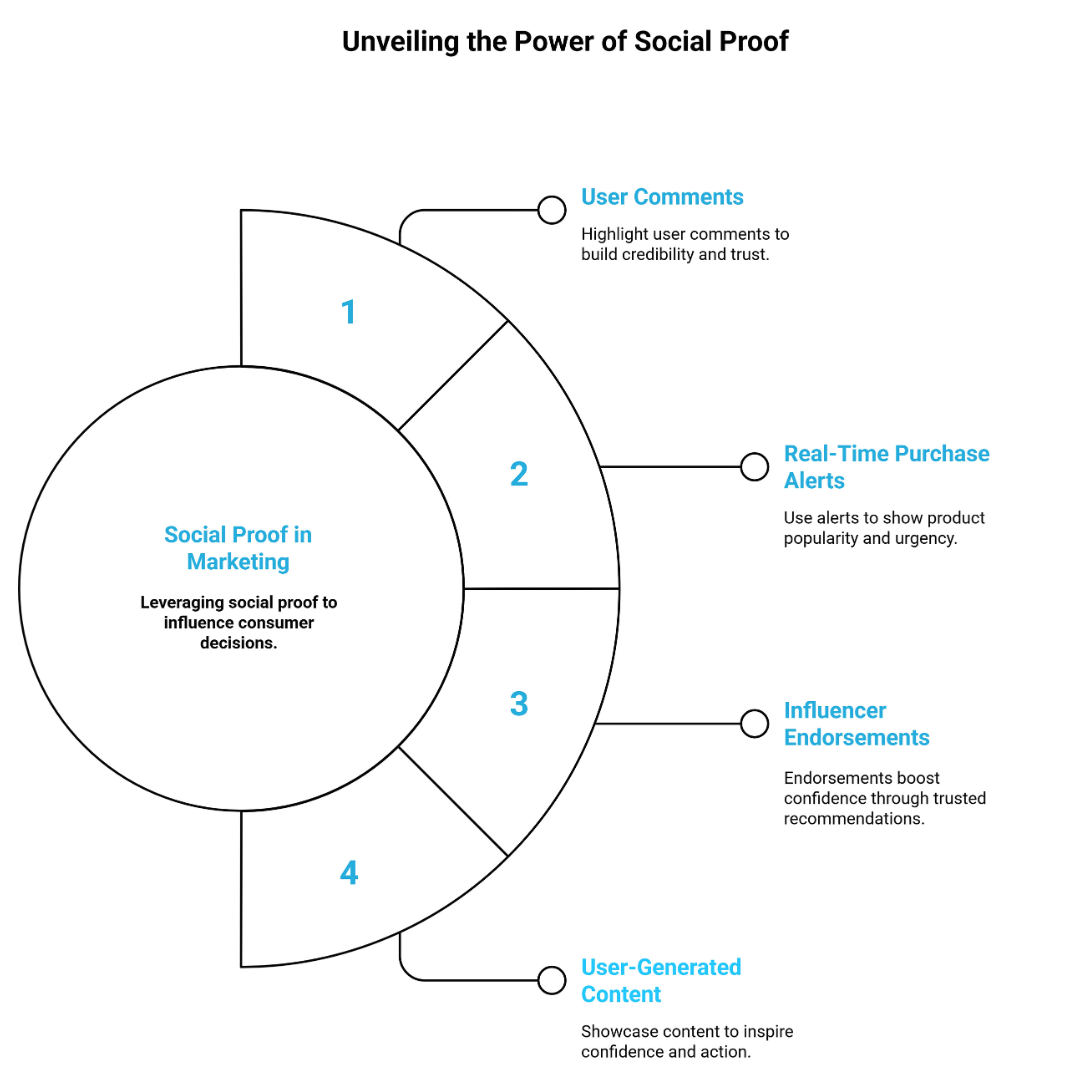
2. Reciprocity
In psychology, reciprocity is the human inclination toward returning favours. This idea might be followed in digital marketing with free materials, samples, or discounts.
This motivates consumers to return by purchasing a good or interacting with the brand further. For a brand and its consumers, reciprocity fosters goodwill and confidence.
In digital marketing, marketers can leverage reciprocity by providing free resources—such as e-books, webinars, or samples—in return for user behaviour, such as email signatures or social media shares.
Providing time-limited discounts or special offers also leverages reciprocity to inspire customers to advance their purchasing.
3. Scarcity
Scarcity makes people feel urgency, which drives customers to act fast to seize a chance. Therefore, they can miss something.
In digital marketing, scarcity is helpful, particularly in low-stock warnings or limited-time offers. This idea stimulates consumers to make quick decisions by playing on their fear of loss.
Are You Tired Of Scams?
Want to Start Making Money Online?
For marketers, psychology shows that scarcity taps into consumers' tendency to value things more when they perceive them as limited or exclusive.
Digital marketers can use scarcity by showing limited-time discounts, countdown timers, or low-stock notifications on product pages. Emphasizing that an offer or product is limited increases urgency, driving immediate action and boosting sales.
4. Anchoring
Anchoring is a cognitive error in which people base decisions on the first piece of information. Anchoring helps more expensive products in digital marketing seem realistic.
Presenting a high price and then providing a discount will help marketers make the final price look more appealing to consumers.
In digital marketing, anchoring can be used in pricing strategies such as “Was $100, Now $50” to create the perception of a great deal.
Marketers can also use bundle offers, where the anchor price for a set of items appears more valuable than purchasing individual products.
5. Cognitive Dissonance
Cognitive dissonance is the unpleasantness consumers experience following a choice that contradicts their values or beliefs.
This can happen in digital marketing when consumers second their choice following a purchase. According to psychology for marketers, confirming to consumers that they made the correct decision can help lower dissonance, raising satisfaction and loyalty.
In digital marketing, companies might offer simple returns or satisfaction guarantees, add product usage advice, and send post-purchase communications with promises to help reduce cognitive dissonance.
Showing customer testimonials or reviews supporting the choice will comfort buyers, lower post-purchase remorse, and strengthen brand confidence.
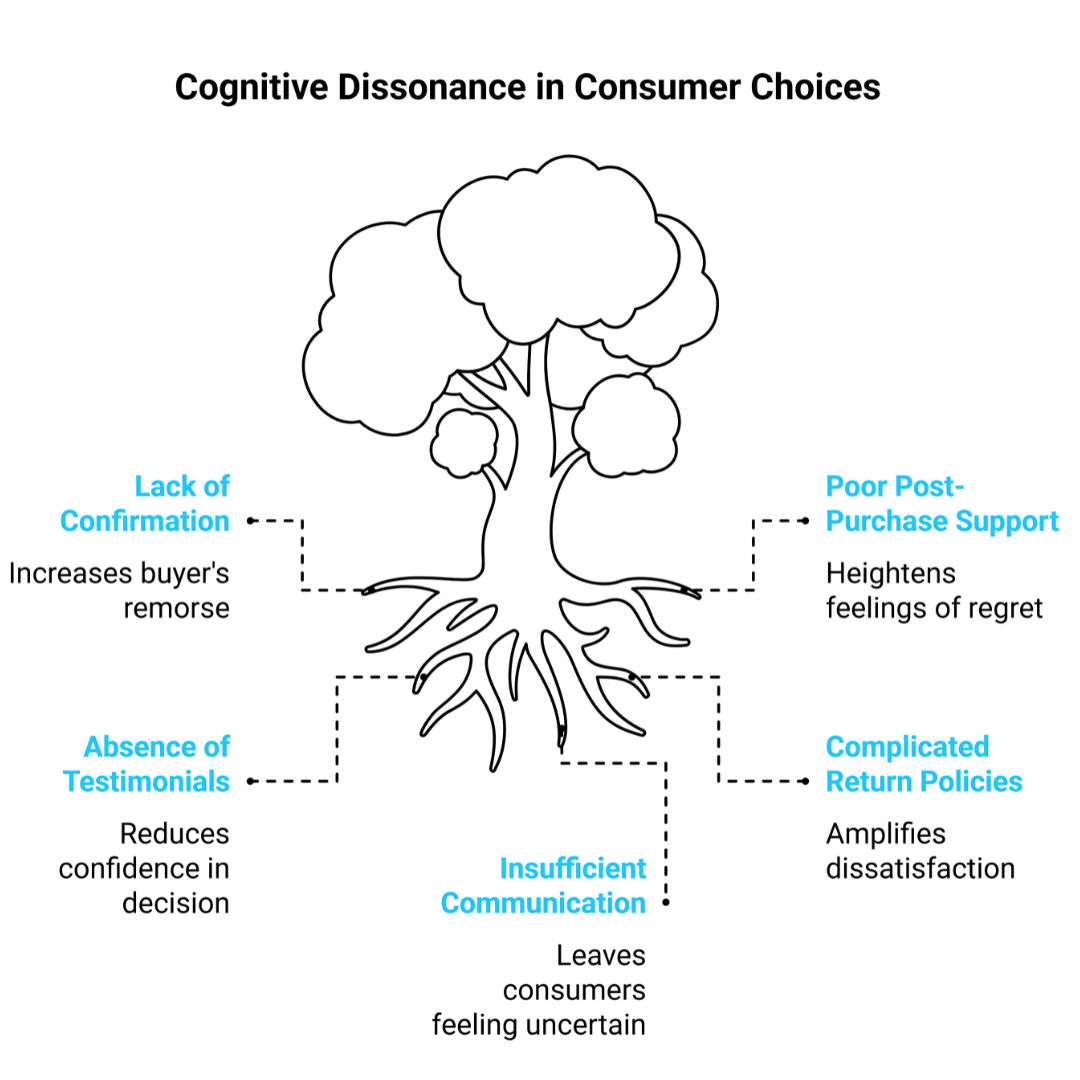
6. Priming
Priming is giving consumers specific cues meant to affect their behaviour subtly. In digital marketing, priming can be accomplished with visual components, information, and messaging that activate particular memories in the customer's memory. This might direct their choice and help define their opinion of a brand or product.
Digital marketers prime their work with certain terms, colours, or visuals that evoke targeted emotions or actions. For example, warm colours on call-to-action buttons can kick off excitement or haste; blue colours inspire confidence and relaxation, increasing conversion rates.
7. Commitment & Consistency
Consistency and dedication imply that once a minor commitment is made, consumers are more prone to make more important ones.
This idea is extensively applied in digital marketing to inspire consumers to engage in minor activities, such as registering for a newsletter or following a social media page, which results in more major involvement or more significant purchases.
Want To Learn How To Create Your Own Website And Online Business?
Try My #1 Recommendation Training And Hosting Platform!
Giving free trials helps marketers use consistency and dedication since it motivates consumers to purchase. Customized offers or discounts enable customers to stay consistent with their past commitments, improving conversion potential.
8. Authority
Consumers tend to trust authority figures and experts, and digital marketing can capitalize on this by associating brands with authoritative voices.
Psychology for marketers shows that authority lends credibility to a brand and helps persuade consumers to trust the product or service. This principle is widely used by incorporating endorsements from experts or influencers who are seen as credible.
Digital marketers can use authority by featuring expert opinions, professional testimonials, or influencer partnerships in their campaigns.
For example, a skincare brand might have dermatologists endorse its products, or a tech company might highlight endorsements from industry experts to build consumer trust.
9. Liking
People are likelier to buy from brands they enjoy or find emotionally relevant. Developing relevant, appealing, and interesting material in digital marketing will help to foster affinity and raise brand loyalty. Marketers can apply this idea by personally relating to their target market via anecdotes, comedy, or common values.
Content that speaks to the audience's values or way of life can help marketers build liking. Customizing the user experience using bespoke emails, recommendations, or customized product offers can boost emotional involvement, strengthening customer relationships and conversions.
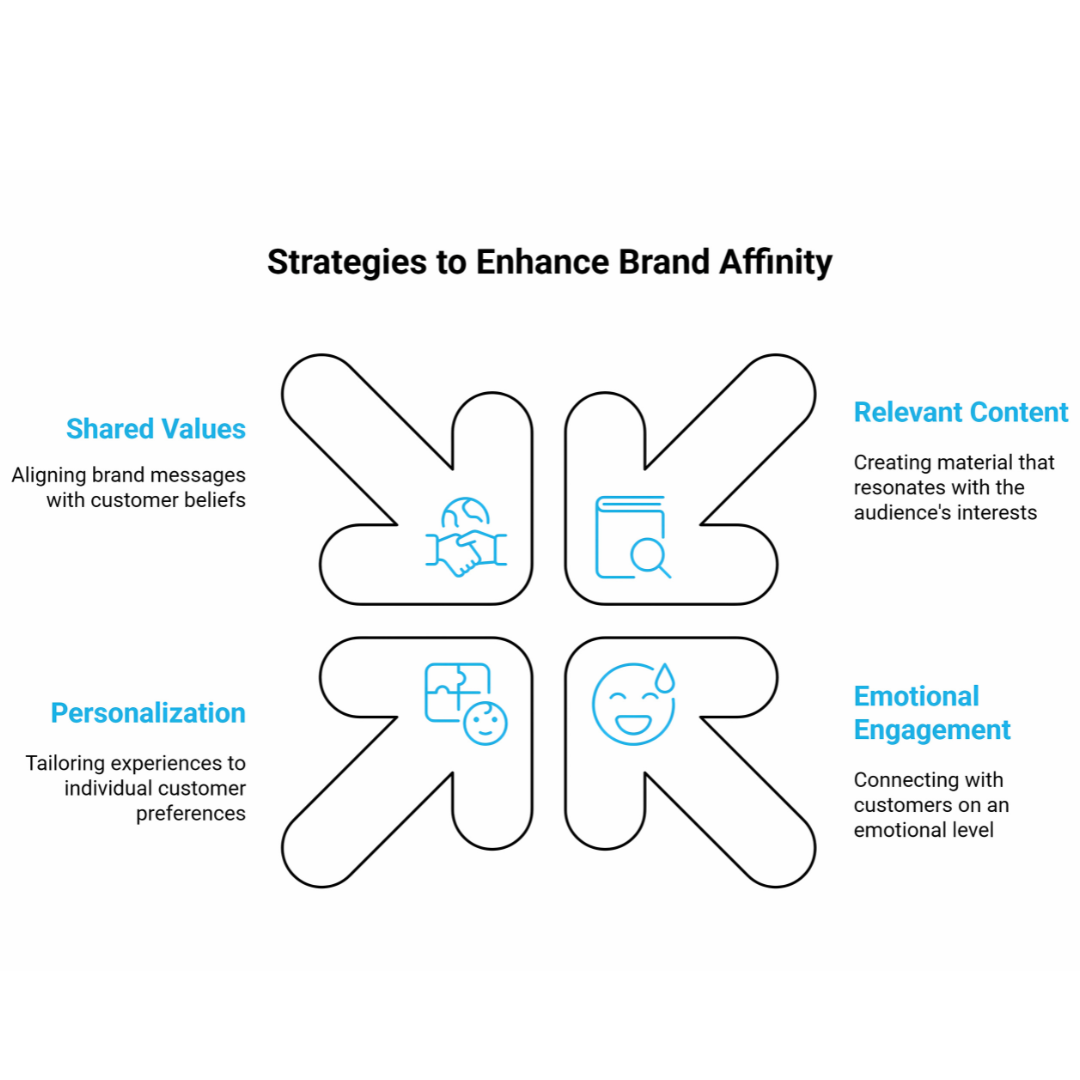
10. FOMO (Fear Of Missing Out)
A psychological condition known as FOMO, or fear of missing out, occurs when consumers worry about passing up a limited opportunity.
Digital marketers can use this to generate limited-time specials or exclusive offers, inspiring action. By leveraging the fear of missing out, marketers can inspire consumers to move fast to land a bargain.
Limited-edition product releases, flash promos, and countdown timers help FOMO be useful in digital marketing. Messages such as “Hurry, only a few left!” or “Offer ends in 24 hours!” encourage consumers to act fast, raising the likelihood of conversion before the offer expires.
11. The Decoy Effect
The decoy effect occurs when consumers are presented with three choices, where the third, less attractive option, makes one of the other options seem more desirable.
In digital marketing, psychology for marketers reveals that this effect can be leveraged by offering multiple pricing plans or product bundles that make the mid-range option appear as the best value.
Marketers can apply the decoy effect by creating pricing packages where one option is more expensive, making the mid-tier option look more reasonable.
For example, offering basic, standard, and premium subscription plans can make the standard plan seem more attractive when paired with an overpriced premium option.
12. Loss Aversion
Loss aversion refers to consumers' tendency to fear losses more than value-equivalent gains. In digital marketing, marketers can use this principle by framing promotions or offers to emphasize what consumers stand to lose by not taking action rather than what they stand to gain.
Marketers can use loss aversion by driving time-limited promotions or highlighting savings consumers would lose out on if they took no action. Such as: “Only 12 hours left to save! And “Don't miss out on 50% off!” to point out losses and encourage action.
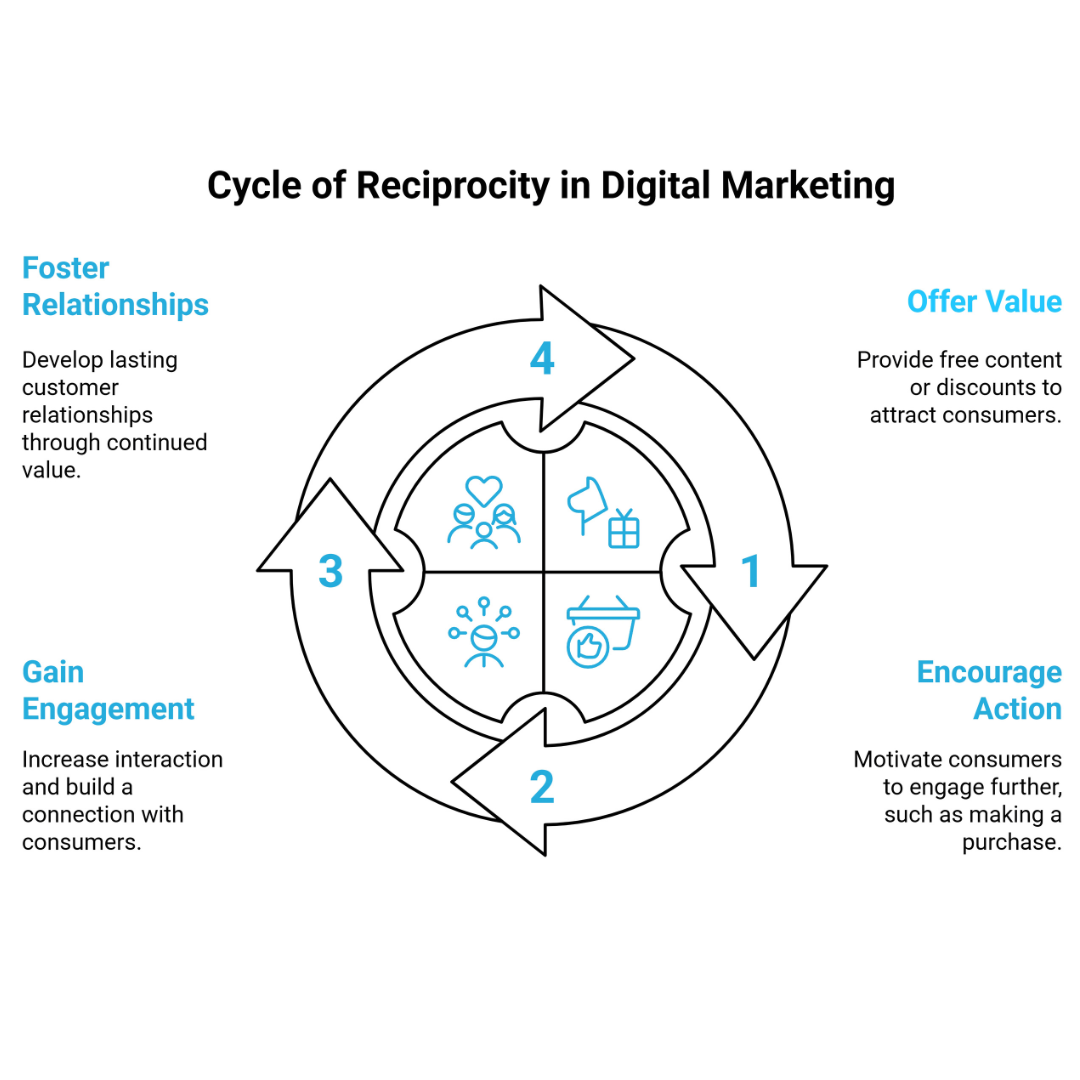
13. Reciprocity Norms
Reciprocity norms suggest that people are more likely to return favours. In digital marketing, psychology for marketers shows that this principle can be leveraged by offering value to consumers, such as free content, discounts, or exclusive offers, which encourages them to purchase or take further action.
Marketers can employ reciprocity by offering free downloading materials or unique content in return for an email address or social media following.
It provides value and taps into the reciprocation instinct to drive higher engagement and conversion rates, enabling businesses to formulate lasting relationships with their customers.
14. Mood-Influenced Decisions
Consumer moods play a significant role in online purchasing decisions. Psychology for marketers in digital marketing suggests that positive moods can lead to impulsive buys, while negative moods may cause consumers to hesitate. Marketers can adjust their messaging to match or influence consumers' emotional states.
Marketers can influence mood through visually appealing ads, positive messaging, and content that evokes a sense of joy or excitement.
Producing inspiring, motivating material or providing feel-good discounts, especially during holidays or special events, can inspire positive feelings and boost conversions.
15. Default Bias
Default bias refers to consumers' tendency to use default options when making decisions. In digital marketing, marketers can capitalize on this by setting beneficial default choices in subscription models, product options, or service settings, making it easier for consumers to continue with the default option.
Marketers can use default bias in e-commerce by offering auto-renewal for subscriptions or pre-selecting options for a product bundle.
By making the default choice the most advantageous for the consumer, marketers increase the likelihood of customers choosing it without making additional decisions.
Practical Applications Of Psychology In Marketing Campaigns
1. Case Study 1
Coca-Cola is a shining illustration of how thriving psychology should be used in marketing. To establish closer relationships with customers, the brand skillfully appeals emotionally.
Through the venerable holiday commercials and the “Share a Coke” campaign, Coca-Cola brings happiness, nostalgia, and belonging.
Stronger ties with consumers resulting from these emotional responses help to build brand loyalty and repeat business.
Coca-Cola reinforces its preferred option by matching its brand with good feelings, therefore, proving the effectiveness of emotional marketing in influencing consumer behaviour and sales.
2. Case Study 2
Amazon uses psychological concepts such as scarcity and social proof in its marketing campaigns. Customer reviews are social proof that influences potential customers by stressing positive experiences others have had. These methods build confidence and motivate buying decisions.
Amazon also creates urgency by offering low-stock alerts and time-sensitive deals, using the fear of missing out (FOMO) to motivate consumers to move quickly and raise conversions. Combining social proof with scarcity, Amazon drives faster purchase behaviour and more sales.
3. Digital Marketing And Psychology
Psychology is vital for marketers in digital marketing, especially email marketing and ad targeting. Marketers employ reciprocity by offering discounts or special offers in return for customer activities, fostering goodwill, and driving purchases.
Marketers also create urgency by citing scarcity using terms like “limited time offer” or “only a few items left.” Customized material based on consumer behaviour raises involvement and conversion rates. These techniques increase the appeal of campaigns and stimulate stronger client loyalty.
4. Product Design And Colour Psychology
Product design and colour significantly influence customer decisions. As psychology shows for marketers, colours arouse particular emotional reactions.
Red is frequently employed, for example, to draw attention and arouse excitement; blue fosters calmness and trust. Marketers deliberately choose colours to match the feelings they wish to arouse in their target market.
Marketers can improve sales, interest, and product attractiveness by choosing colours that fit the brand's character and appeal to consumer tastes.
5. Behavioural Targeting
In digital marketing, behavioural targeting is the process of customizing messaging depending on online activity using customer data.
Marketers can create tailored advertisements that fit certain consumer interests and demands by examining browsing and purchasing behaviour. Given consumers' responses to pertinent offers, this degree of personalization raises the possibility of conversion.
Behavioural targeting creates stronger relationships between brands and consumers, promoting loyalty and repeat business. Providing customized materials at the right moment promotes interaction and increases sales.
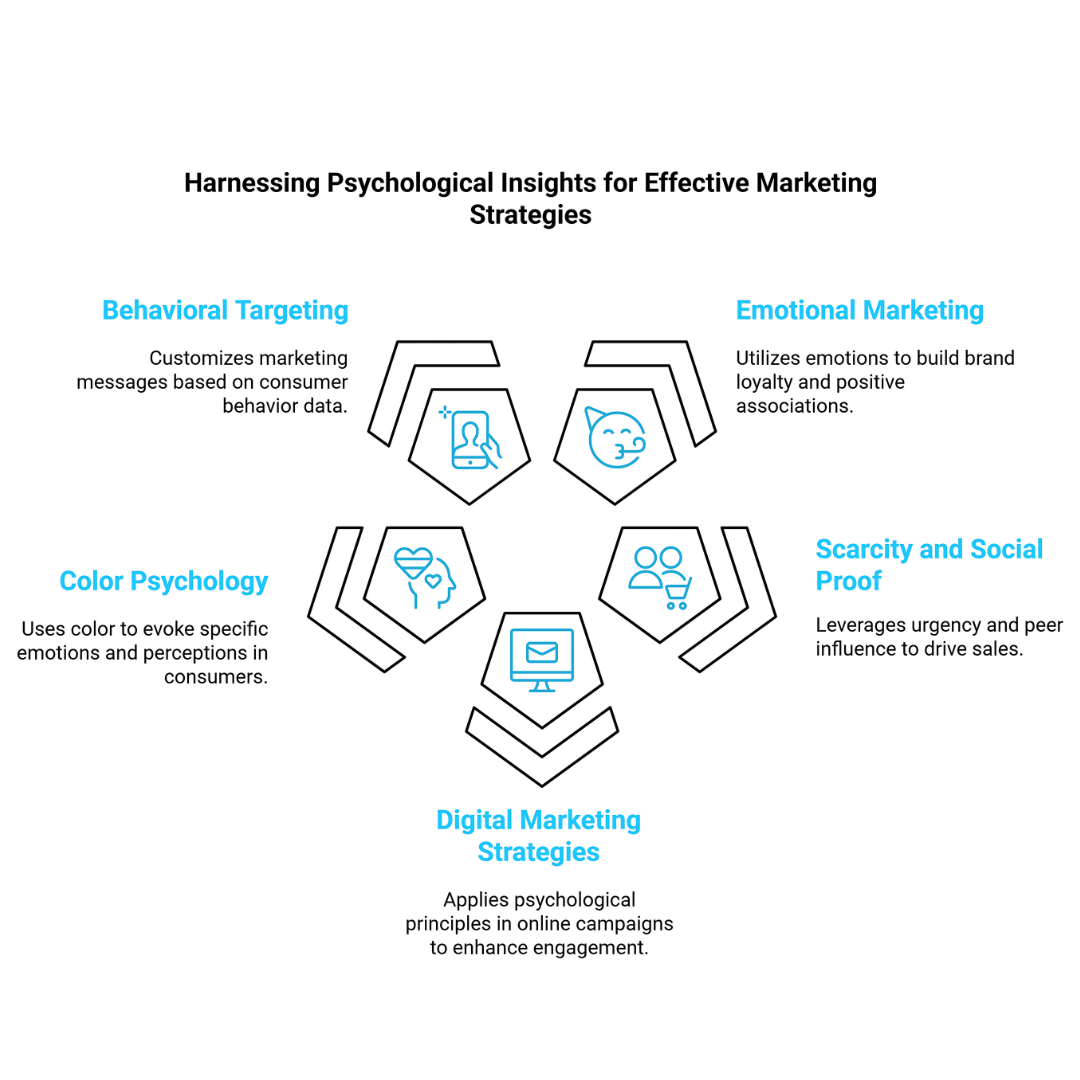
FAQ
1. How Is Psychology Used In Marketing?
Psychology helps marketers understand consumer behaviour, influence decisions, and create persuasive campaigns. Techniques like social proof, scarcity, and emotional appeal drive engagement and sales.
2. Why Is Psychology Important In Marketing?
It allows brands to interact with customers, foster loyalty, and improve their tactics. Understanding emotions and cognitive biases improves marketing effectiveness.
3. Why Is Colour Psychology Important In Marketing?
Colours influence emotions and purchasing decisions. Brands use them strategically to evoke trust, urgency, or excitement.
Conclusion
Psychology is crucial for marketers in digital marketing because it helps them understand and influence consumer behaviour.
Marketers can leverage principles like social proof, reciprocity, and scarcity to create compelling campaigns that drive decisions and increase conversions.
As technology advances, these psychological insights remain vital for developing personalized strategies that enhance consumer engagement and foster long-term brand loyalty. These principles ensure that marketers effectively connect with their audience, leading to sustained business growth.
I trust you enjoyed this article about Psychology For Marketers: 15 Persuasion Secrets For Social Media. Please stay tuned for more articles. Take care!
JeannetteZ
Want to Learn How to Build Your Own Home-Based Online Business And Start Making Money Online From Your Comfortable Couch?
Try Wealthy Affiliate!
Your Opinion Is Important To Me
Do you have thoughts, ideas, or questions? I would love to hear from you. Please leave me your questions, experiences, remarks, and suggestions about the Psychology For Marketers: 15 Persuasion Secrets For Social Media in the comments below. You can also email me at Jeannette@WorkFromAnywhereInTheWorld.com.
Disclosure
This post may contain affiliate links. I earn from qualifying purchases as an Amazon Associate and through other affiliate programs. Please read my full affiliate disclosure.
You may also enjoy the following articles:
Wealthy Affiliate Coupons For Premium Memberships
Wealthy Affiliate Review – Scam or Legit? The Truth Exposed
An Insider Wealthy Affiliate Review
25 Game-Changing Facebook Post Ideas For Small Businesses
Make Money As An Amazon Affiliate With Proven Strategies
8 Proven Affiliate Programs For Pinterest: Unlock Your Earning Potential Today!
14 High-Paying Instagram Affiliate Programs to Boost Your Income


